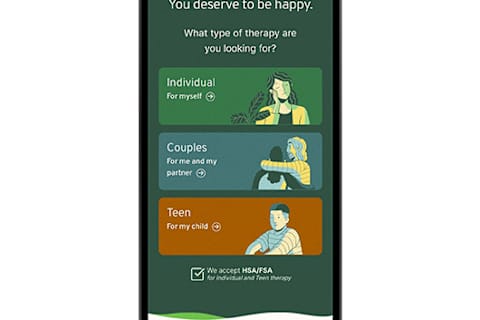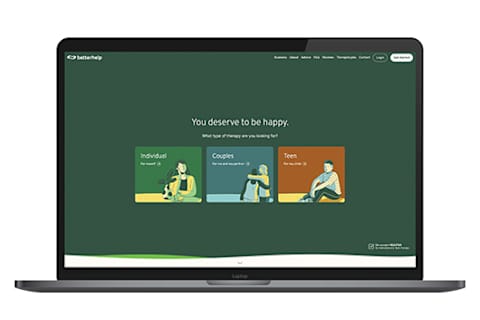Advertisement
Want To Try Therapy? Here Are The Biggest Myths To Know Before Your Session

As a BetterHelp affiliate, we earn compensation from BetterHelp if you purchase products or services through the links provided.
Starting therapy should be exciting. Support and guidance from a licensed therapist can make it easier to deal with the natural ebbs and flows of life. But it's easy to feel intimidated by the process, especially when there are so many misconceptions floating around about therapy.
Ahead of your first session, we're breaking down the biggest myths about therapy to help ease any lingering fears—so you can prioritize your mental health without apprehension.
The biggest myths about therapy
Therapy is an expensive luxury.
The average cost of an in-person therapy session in the United States is about $100 to $250 without insurance. Seeking out a therapist with sliding scale pricing is a great way to find an option within your budget—but that's not the only way to save!
Online therapy is up to 50% more affordable than in-person options with platforms like BetterHelp. Similar to with in-person therapy, these licensed mental health experts can integrate a range of evidence-based therapy techniques to help reflect on the last year (and reimagine what's ahead). It's also far more approachable, with appointments available from the comfort of your home.
Online therapy isn't as efficient as in-person therapy.
Still doubting the benefits of telehealth? Research shows online therapy is just as effective as in-person therapy for treating common mental health conditions with physiological support. Plus, chatting online can be easier for people who are just starting out with therapy—so you can start out with texts or live chats and progress to video call as you get more comfortable with your licensed expert.
Just remember: It's important to make sure any online therapist is credentialed. For example, BetterHelp vets each professional by verifying their therapist's license, education, and clinical experience. In some cases, licensed experts even complete case studies to assess their clinical skills.
Ultimately, what you get out of therapy is what you put in—and your preferred appointment type won't get in the way of your progress.
Once you start therapy, you can never stop.
Therapy gives you the tools to unpack the past, handle the presence, and plan for the future. While some people feel like they have enough tools to tackle a big project after preparing for a few months, others might want to revisit the instructions a few times or add one more hammer to their toolbox.
All that to say, there's no "right" amount of time to work with a licensed therapist. You might realize that you prefer short bouts of support during hard times, or you might discover that consistent weekly support is essential for you to thrive. Either way, it's about deciding what works best for you with the help of your therapist.
Therapy is only for rehashing the past.
Most of us share the same vision of therapy: You're lying on an uncomfortable leather couch and somberly discussing your family history. And while therapy will definitely help you to understand how your current behaviors came to be, it's also a useful tool for creating the future you want.
With 2025 officially underway, you have a blank slate to write your story. Allow your therapy sessions to help you enter a new chapter with techniques and strategies that allow you to build your best self.
You have to stick with the same therapist.
Think of finding a therapist as being like dating. You won't always immediately match with the right person—and it can take a few first dates until you find a connection worth pursuing.
Opting for a flexible platform like BetterHelp lets you shop around for a licensed therapist without figuring out new payment methods. What's more, you can easily sort through 30,000 options to find one that meets your needs, location, and preferences.
You'll feel transformed after your first therapy session.
If only therapy was as simple as attending one session and feeling like a new person—but it's work. Many people won't actually start to see the impact of therapy on their lives for at least a few months or even a year. Don't get discouraged! Every minute of therapy is building the foundation for the future you want.
The takeaway
Whether you're dealing with a breakup, job stress, or family disagreements, therapy can be a helpful tool for getting a handle on your mental health. As you consider starting therapy, remember these common misconceptions to ensure you're entering this next stage of life with excitement—not anxiety.


